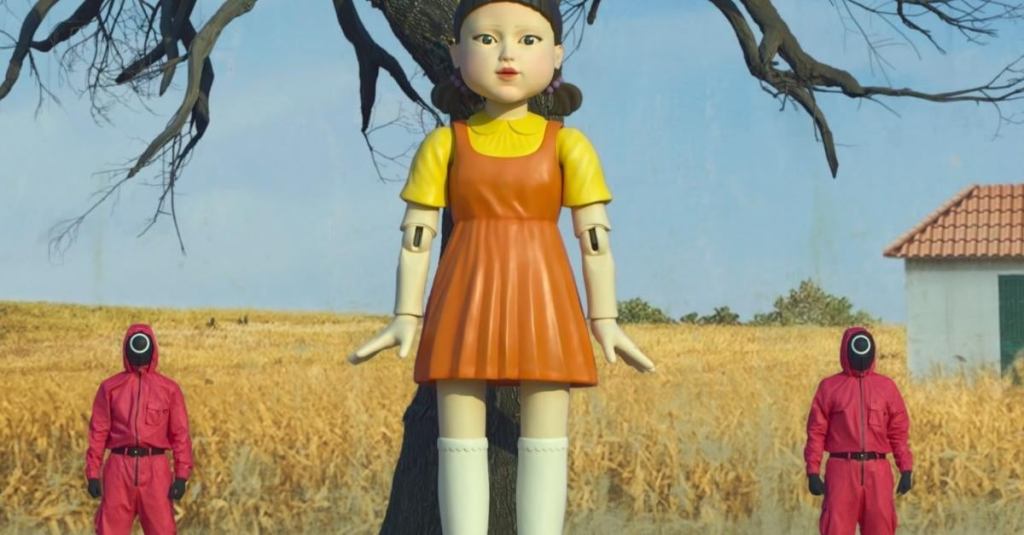
Squid Game (the Korean-language version) has completed its three-season run on Netflix. The series has been one of the most transformative shows of the 2020s. First springing up during the COVID-19 pandemic era (2021) and becoming an international hit, Squid Game forced viewers to pause and consider greed’s erosion of human empathy, even as they themselves were thrilled and morbidly delighted watching games of death being played by desperate characters.
However, time and circumstances change perspective. Squid Game 2 and Squid Game 3 arrived in 2024 and 2025, respectively, and the series just couldn’t be taken the same way. Lockdowns and pandemic paranoia were over; economic strife and dog-eat-dog mentality was on the uptick, and Squid Game itself had gone from foreign-language dark horse hit to a full-blown capitalist’s dream of a franchise for Netflix.
Fans haven’t been subtle in criticizing Squid Game Season 2 and creator Hwang Dong-hyuk’s self-winking attempts to deal with the conflict between the show’s themes and its popularity. Meanwhile, final opinions about Season 3 are still taking shape (at the time of writing this), but reveal their own share of criticisms.
So how to rank the three seasons of Squid Game? While the final list may not be surprising, we’d like to do a deeper dive into why each season is placed where it is.
3) Squid Game 2

Squid Game Season 2 is one of the most egregious “sophomore slump” dips we’ve ever seen in a major TV show. The season (and its creators) make just about every conceivable mistake there is to make. It started at a snail’s pace, taking multiple episodes to take us back to the actual games; it tried to spread the focus over a larger cast of characters, while failing to make many of them resonate; it did direct repetitions of the first season (like the infamous “Red Light, Green Light” game), didn’t offer the same epic level of death game set pieces as Sesaon 1; the best character (Thanos the rapper) got killed off way too soon; the “twists” were predictable (if not telegraphed) and ultimately the climactic act (a short-lived revolution among the players) was underwhelming.
Worst of all, Squid Game‘s second season was labeled as “2”when really it was one of Netflix’s trademark “Part 1” storytelling formats, offering viewers a half-finished story arc that “Season 3” would pick up on immediately and conclude. After seeing part 3, it’s like even the show’s creators wanted to forget Season 2 even happened. We know the feeling.
2) Squid Game 3

Squid Game 3, to the show’s credit, manages to end things on a better note. While Season 2 felt like it was meandering in terms of characters, focus, and thematic arc, Season 3 manages to wrangle each of those aspects of the show well enough to make it feel like a fittingly epic (if depressing) conclusion.
The games were once again on the scale fans expected from the show, while the moral and ethical quandaries that were part of Season 2’s games were better balanced with he action, drama, and bloody stakes needed to keep you on the edge of your seat. The draw back of Season 3 is that, by the final games, there’s virtually no one left to root for, outside of Player #456 (Lee Jung-jae), as the remaining characters in the show (even the seemingly “good ones”) sink to places of such great despair and/or compromise that it’s hard to feel like the show has a single hopeful bone left in its body. Squid Game 3 doesn’t believe that humanity is good (outside of the occasional Christ-like martyr), or that real change can be achieved, rather than societal dysfunction becoming a franchised commodity.
1 ) Squid Game

The first season is still indisputedly the best of them – and arguably the only one that should’ve been made. Squid Game was such a succinctly brutal-yet-profoundly-entertaining modern vision of concepts like The Hunger Games or Battle Royale, while being one of the biggest ambassadors for mainstream English-language audiences of the streaming era jumping into Korean-language TV series and movies, and beyond (Japanese and Hong Kong cinema, etc.).
Cultural impact aside, Squid Game was simply a great and straightforward example of a show concept being executed well. The episodes and storytelling were perfectly paced; there were several talented actors who created memorable characters, while core thematic and character arcs took Player #456 all the way from a selfish, greedy, lowlife, to an impassioned humanitarian forever scarred by all the horror it took to earn his wealth (down to symbolically murdering his own childhood and innocence). The final act twist was also one for the ages, while the epilogue with its final “game”of testing human beings’ empathy for one another (or lack thereof) and things on a swelling note of hope. It was a simpler show, for a simpler time, and like the chidrens’ games themselves, it was more innocent and carefree enjoyment.
Honorable Mention: The Challenge

It’s a reality show, so it belongs in a whole separate category. But honestly? Some people may argue that watching Squid Game: The Challenge is more enjoyable than one (if not both) of the final two seasons of the actual show.
The Challenge smartly knows that it can’t offer the brutal, life-or-death stakes of the dramatic series. Instead, it leans into the social politics, ethical dilemmas and player drama, creating alternating moments of alliance and/or backstabbing that then set the emotional “stakes” for each game’s outcome, and each subsequent player elimination. Some of the remixed games (like a life-sized Battleship game board) are truly inspired ideas we wouldn’t mind seeing in the US version of the dramatic series; The Challenge also gave reality TV some fun new stars (Bryton), and Netflix hasn’t missed out on using them in other shows.
Squid Game is now streaming all seasons on Netflix. An American version of the series is in development.
The post All 3 Seasons Of Squid Game Ranked appeared first on ComicBook.com.


